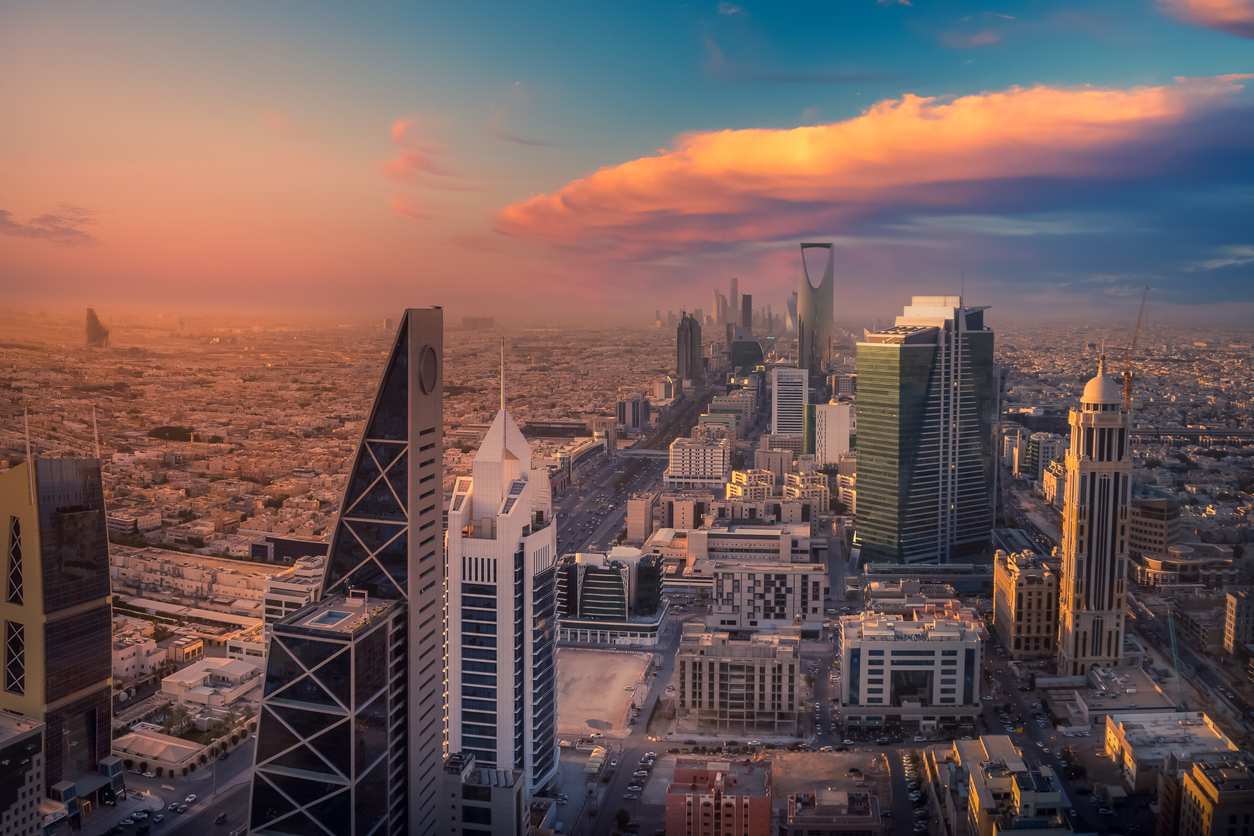Neom CEO Nadhmi al-Nasr Departs as Saudi Arabia Scales Back Mega-Projects
In a move that has sent ripples through the business world, Nadhmi al-Nasr, the longtime CEO of Neom, has announced his departure from the $500 billion Saudi development project. Al-Nasr, who had been at the helm of the ambitious urban and industrial project since its inception, is stepping down at a time when Saudi Arabia is recalibrating its mega-projects, including Neom, due to rising costs and shifting economic priorities. While no official reason has been given for his departure, the announcement signals a broader shift in Saudi Arabia’s approach to economic diversification under the leadership of Crown Prince Mohammed bin Salman.
Launched as part of the crown prince’s Vision 2030 initiative, Neom is a groundbreaking $500 billion development project designed to transform the kingdom’s economy and create a futuristic, tech-driven urban environment. Situated along the Red Sea, the city is expected to cover an area nearly the size of Belgium and house up to 9 million people. With ambitious plans to build state-of-the-art infrastructure, including futuristic cities, smart homes, and eco-friendly spaces, Neom is designed to be a beacon for the future of living and work. However, as global markets face unpredictable volatility, Neom and other ambitious Saudi projects are experiencing some growing pains.
The Vision Behind Neom and the Ambitions of Vision 2030
Neom is one of the most visible and transformative elements of Saudi Arabia’s Vision 2030 plan, a strategy launched by Crown Prince Mohammed bin Salman to diversify the kingdom’s economy beyond its reliance on oil. As the world’s top oil exporter, Saudi Arabia has long been vulnerable to fluctuations in global oil prices, and the government has been increasingly focused on developing new sources of revenue. Vision 2030 aims to make the country a leader in multiple industries, including tourism, entertainment, technology, and renewable energy.
Central to this vision is Neom, a project that is intended to be an all-encompassing urban environment that merges cutting-edge technology with sustainable development. The city is designed to foster innovation, attract global talent, and drive economic diversification. But the sheer scale and ambition of the project have created challenges.
At the core of the Neom development is a concept known as “The Line,” a futuristic, linear city that will stretch 170 kilometers (106 miles) across the desert and will feature mirrored walls, towering skyscrapers, and eco-friendly spaces. The city will offer ultra-high-speed transport systems, renewable energy infrastructure, and cutting-edge amenities, making it an ideal destination for tech companies and innovative startups. However, as the project has progressed, it has become evident that the costs associated with Neom’s development are higher than initially anticipated, forcing the government to reassess its timelines and scope.
Rising Costs and Scaling Back: The Economic Reality of Neom
The financial realities of mega-projects like Neom have begun to set in, especially in the face of rising construction costs and a global economic downturn. Saudi Arabia’s Public Investment Fund (PIF), which has played a central role in funding the development of Neom, is also dealing with fluctuating oil prices and the ongoing economic impacts of the COVID-19 pandemic. While Saudi Arabia remains one of the wealthiest nations globally, the state’s oil revenue—which has been the backbone of the country’s wealth—has been significantly affected by the global decline in oil prices.
As a result, some of the original visions for Neom have had to be scaled back. For instance, the city of “The Line,” which was originally envisioned as a sprawling, mirror-clad desert metropolis, is now facing revisions in terms of size and development timeline. Additionally, a review of other projects under the Vision 2030 umbrella has resulted in a more focused, strategic approach aimed at increasing the probability of success in the country’s future ventures.
In May 2023, Reuters reported that the $925 billion PIF was conducting a major reorganization aimed at refining its focus and investing in projects that have a higher chance of success. With a significant portion of the country’s economy still reliant on oil revenue, the reorganization is a prudent step toward ensuring that Saudi Arabia’s ambitious goals are met without overstretching its financial resources.
Leadership Changes: Nadhmi al-Nasr’s Departure
Nadhmi al-Nasr, who has served as CEO of Neom since its inception, has been a central figure in the project’s launch. His departure at the end of 2024 comes at a crucial time as Neom enters a new phase of its development. While the official statement released by Neom did not specify the reasons for al-Nasr’s departure, it is clear that the company is at a crossroads, as it scales back some of its ambitious plans and recalibrates its focus.
Al-Nasr’s departure is seen as part of a broader leadership shift within the kingdom’s major projects. While his tenure has been marked by tremendous ambition and the groundwork for the Neom vision, his exit may reflect broader changes in leadership priorities as Saudi Arabia works to align its mega-projects with more achievable goals.
Neom’s statement emphasized that Aiman al-Mudaifer, the head of PIF’s local real estate division, would assume the role of acting CEO of Neom. Al-Mudaifer has extensive experience with the Neom project and a deep understanding of the Saudi government’s long-term vision for the region. Having served in various leadership roles at PIF, including overseeing infrastructure projects and real estate investments, Al-Mudaifer’s appointment is a strategic move to ensure operational continuity as Neom transitions into a new phase of development.
Aiman al-Mudaifer: A New Leader for a New Phase
Aiman al-Mudaifer brings significant experience to his new role as acting CEO of Neom. As the head of PIF’s local real estate division, al-Mudaifer has been instrumental in shaping the direction of some of the kingdom’s most ambitious real estate and infrastructure projects. His appointment as acting CEO signals a shift toward a more focused and pragmatic approach to the Neom project. His deep knowledge of the PIF’s investment strategy, as well as his hands-on experience in managing complex development projects, positions him well to steer Neom through the next phase of its evolution.
In the press release announcing his appointment, Neom stated that al-Mudaifer’s leadership would bring “operational continuity, agility, and efficiency” to the project, ensuring that Neom’s vision aligns with the overall goals of Vision 2030. Under al-Mudaifer’s leadership, the company is expected to refine its operational strategy, focusing on realistic timelines, managing costs effectively, and ensuring that key projects remain on track.
Neom’s Future and Vision 2030
Despite the leadership change and the scaling back of some ambitious plans, Neom remains a key component of Saudi Arabia’s Vision 2030. The project is still seen as central to the kingdom’s efforts to diversify its economy and reduce its dependence on oil. The futuristic city of Neom, along with its various urban, technological, and industrial initiatives, has the potential to reshape the region’s economic landscape. With the right leadership and strategic focus, Neom can still fulfill its original promise of becoming a global center of innovation and sustainable development.
As Saudi Arabia adjusts its approach to these ambitious projects, the country will continue to monitor global economic trends, invest in new technologies, and prioritize initiatives that align with its long-term goals. Neom’s future remains bright, though the journey ahead will require careful navigation through economic and political challenges.
A New Chapter for Neom and Saudi Arabia
Nadhmi al-Nasr’s departure as CEO of Neom marks the end of an era for one of the world’s most ambitious development projects. As Saudi Arabia faces the economic realities of large-scale mega-projects, the leadership transition at Neom reflects the kingdom’s shift toward a more strategic, focused approach. Under Aiman al-Mudaifer’s leadership, Neom is poised to continue its evolution as a central part of Saudi Arabia’s Vision 2030, adapting to the changing global landscape while maintaining its position as a symbol of innovation and economic diversification.











